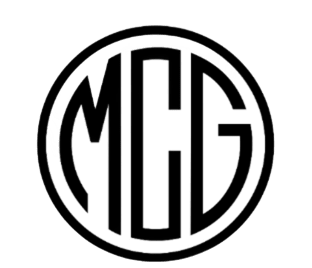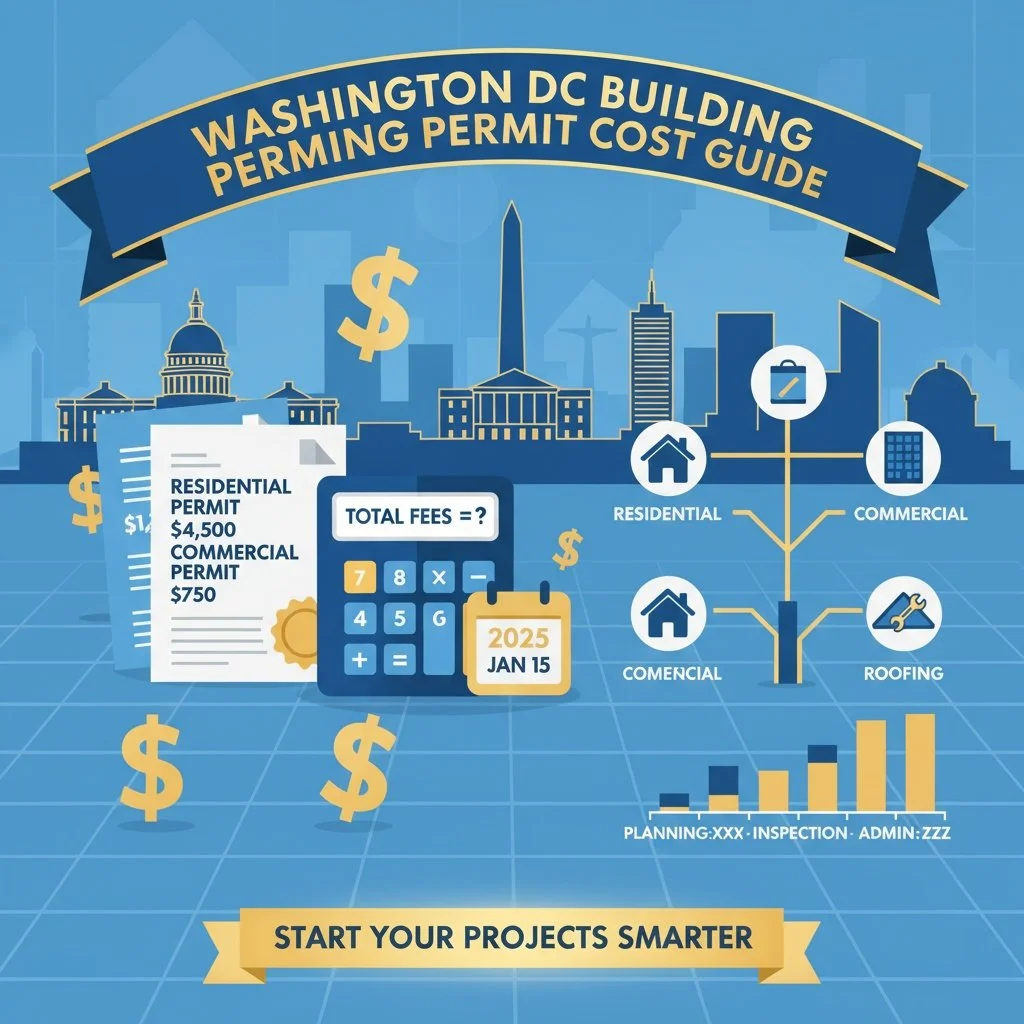HOW MUCH DOES A BUILDING PERMIT COST IN D.C.? 2025 FEE SCHEDULE EXPLAINED
If you’re planning a construction project in D.C., don’t let the permit fees catch you off guard—because in this town, red tape doesn’t come cheap.
Permitting in D.C. Is Like Ordering à la Carte—Every Detail Adds to the Bill
Whether you’re renovating a rowhome, building a new commercial space, or expanding a mixed-use development, permits in Washington, D.C. are mandatory—and often confusing. The cost of a building permit isn’t just a flat fee. It’s based on a mix of valuation, permit type, project size, and even location.
In this guide, we’ll break down the 2025 D.C. building permit fee schedule, explain how fees are calculated, and offer tips to avoid overpaying.
1. Permit Costs by Construction Value: The Core Pricing Formula
The bigger the project, the bigger the price tag—and D.C. wants its cut.
Most building permits in D.C. are calculated based on the declared construction cost. The Department of Buildings (DOB) uses a tiered percentage system to determine the fee:
Declared Construction ValuePermit Fee Rate$0 – $5,000$69 flat fee$5,001 – $10,000$69 + 1.34% of value over $5,000$10,001 – $50,000$136 + 1.28% over $10,000$50,001 – $100,000$648 + 1.15% over $50,000$100,001 – $500,000$1,223 + 1.05% over $100,000$500,001 – $1,000,000$5,423 + 0.95% over $500,000Over $1,000,000$10,173 + 0.8% of remaining value
Example:
If your declared construction cost is $350,000, your permit fee would be:
$1,223 + 1.05% of ($350,000 - $100,000)
= $1,223 + $2,625
= $3,848
💬 “Many people under-declare their costs to save on fees—but DOB uses national cost estimates to verify your numbers. Play it straight to avoid permit delays.” — Steven Lang, Construction Law Consultant
2. Plan Review Fees: The Hidden Line Item You Can’t Ignore
Submitting drawings? That’s another charge on your invoice.
For any project involving architectural plans, structural modifications, or system upgrades (HVAC, plumbing, electrical), you’ll pay a plan review fee, which is 50% of the total permit fee.
So, in our $350,000 example, the $3,848 permit would come with a $1,924 plan review fee, bringing the total to $5,772 before any other permits.
📊 Stat: Plan review fees account for nearly 30% of most total permit costs in commercial projects over $250,000.
Pro Tip: Bundle multiple scopes (e.g., mechanical + structural) into one application when possible to minimize separate review fees.
3. Trade Permits: HVAC, Electrical, Plumbing & Gas
Each system needs its own permit—and its own fee.
If your project includes mechanical, electrical, plumbing, or gas work, you’ll need trade permits in addition to your main building permit. These fees are usually based on system type and scope, such as:
HVAC installation (by unit tonnage)
Electrical wiring (by amperage or number of panels)
Plumbing fixtures (per fixture or system)
Gas lines (based on number of appliances)
Example Fee Ranges:
HVAC Permit: $69 to $300+
Electrical Permit: $100–$1,000+ depending on system
Plumbing Permit: $69 + $10–$20 per fixture
Gas Permit: $69 minimum
Pro Tip: Hire licensed subcontractors who pull their own trade permits. You’ll avoid delays and DOB headaches.
💬 “You can’t skip trades. Unpermitted electrical work will haunt your inspections and resale.” — Carla Jenkins, Master Electrician
4. Specialty Fees: Add-Ons That Sneak Up On You
Historic district? Green roof? Solar? Get ready to pay extra.
Some permit types come with additional fees, including:
Green Building Compliance Fee (for new construction or large commercial)
Historic Preservation Review ($36–$100 depending on the project)
After-Hours Work Permits ($36+ per day)
Raze or Demolition Permits ($69 + site-specific fees)
Certificate of Occupancy (C of O) (starting at $36)
Also, expedited reviews come with rush surcharges—up to 50% of your total permit fee.
📊 Stat: Expedited permitting increased 18% in 2024 as developers raced to meet zoning and leasing deadlines.
Pro Tip: Plan your project calendar around DOB’s review timelines—paying to skip the line isn’t always worth it.
5. 2025 Fee Increases: What’s New This Year
Yes, fees went up.
In 2025, D.C. updated its permit fee schedule to adjust for inflation and staffing costs. Notable changes include:
Higher thresholds for larger projects (>$500,000)
Increased plan review fees for complex structures
Steeper fines for unpermitted work (now up to $5,000/day for repeat violations)
Also new: a sustainability surcharge on commercial projects over 50,000 sq. ft., aimed at funding green infrastructure reviews.
💬 “Permitting isn’t getting cheaper—but it’s getting more predictable. Understanding the structure is key to budgeting right.” — Devin Chang, Real Estate Development Advisor
Final Thoughts: Know Before You Build
Building in D.C. means planning ahead—not just in bricks and labor, but in permits and fees. Whether you’re budgeting for a boutique renovation or a multimillion-dollar tower, understanding the 2025 D.C. permit fee schedule can save you thousands and prevent costly missteps.
Key Takeaways:
✔ Fees are based on declared construction value
✔ Plan reviews cost 50% of the base permit
✔ Trade permits are separate and mandatory
✔ Specialty fees and surcharges can add up fast
✔ Fines for unpermitted work are harsher in 2025
Need help navigating your D.C. building permit fees?
At M.C.G. Permit Consultants, we break down the numbers, streamline the applications, and keep your project on schedule and within budget.
📞 Call: 202-729-8272
📧 Email: sayhello@mcgpermits.com
🌐 Visit: www.mcgpermits.com
Let us take the guesswork (and paperwork) out of your next project.

